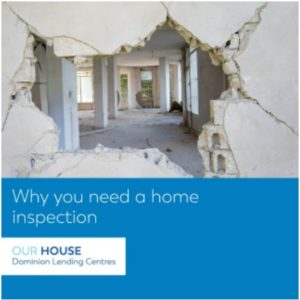A home inspection isn’t a legal requirement when you buy a home in Canada. Yet, it’s certainly a wise decision for the largest purchase you will likely ever make.
Here are five reasons why you should opt for a home inspection when buying a home, even if it is a brand-new build.
- Things unseen
The home you want to buy may have a gorgeous skylight, cathedral ceilings and a huge master bedroom. But the home’s aesthetics can hide big problems.
When you tour a house, you aren’t climbing into the crawl space or looking at the furnace. A home inspector isn’t wowed by beautiful staging. He or she will look at what’s in your walls, not what’s on them.
- Realistic budget for home maintenance
Many home inspections include the items that will need to be replaced within the next five years.
Paying for a home inspection can help you come up with a realistic home maintenance budget. If you know that the windows and roof are nearing the end of their lifespan, you can plan for that.
- A solid negotiation tool
Getting a home inspection gives you a huge amount of leverage. You can ask the sellers to fix some or all of the issues found during the inspection. Or you can renegotiate the sale price or ask the seller to contribute more towards closing costs.
With a home inspection, you have the upper hand in the deal. This gives you a lot of power to get a better deal on the purchase. Of course, you can also choose to back out of the sale if there are big, expensive issues that you’d rather not deal with.
- Can be an eye-opener
A home inspection will reveal the big picture when you might be focused on the location and the open kitchen plan. You don’t want to be blind to the potentially big issues like foundation cracks or electrical problems that can lurk unseen.
- Peace of mind
Lastly, and most importantly, a home inspection gives you peace of mind. You’ll be able to finalize the sale of a home knowing exactly what you’re getting yourself into. That way, you don’t uncover any major surprises shortly after moving in—even new builds are subject to issues.
Published by FCT


